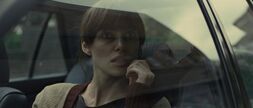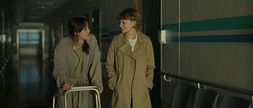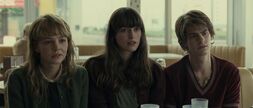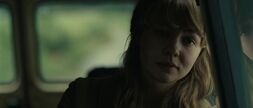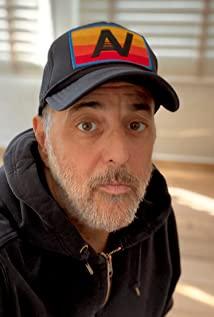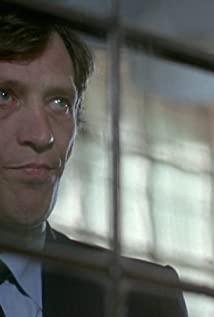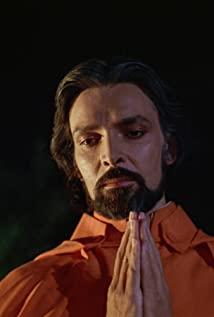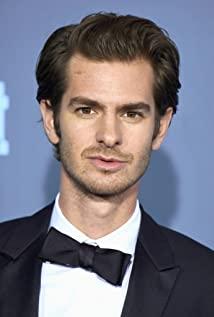"Never Let Me Go" (Never Let Me Go) was a movie last fall, the original work by Ishiguro Kazuo, directed by Mark Romanek, but I didn’t see it until not long ago. It was on the small TV on the back of the front seat during a long flight. Because there was a manuscript to be reviewed by a certain journal in my laptop, and the subject of the article happened to be the novel "Don't Let Me Go", so I put on my headphones, watched the movie, and then read other people’s reviews. Suddenly Feeling that I have something to say, I started to write this short essay.
The movie version of "Don't Let Me Go" is quite pleasing to the eye: the characters are youthful, the costumes are elegant, and the face paintings are exquisite; the story is rather bleak, which naturally comes from Ishiguro Kazuo's original work. Usually science fiction stories have a clear "crisis-solution" theme, and the process is mostly intense and exciting. Although "Don't Let Me Go" has the theme of human cloning, it is more like a literary film dressed in science fiction. After all, boys The love triangle of young girls always takes place in our ordinary and trivial lives, and no one can escape the passage of time from growth to death. However, unlike growth and love stories in the general sense, the boys and girls in "Don't Let Me Go" are not really human beings. They were created by cloning technology and have been carefully raised since birth, living in what seems like a paradise. In his boarding school, he was destined to donate healthy organs until his life died. They used to know that the "God" who controls their own destiny is the human beings who want to conquer nature and control their destiny. Even if they are told about the identity of clone and the mission of organ donation, they still mistakenly believe that they are members of human beings and still love without hesitation. , To be greedy for life, to endure the pain of "love parting, not begging". In this way, we humans can be understood as clones of "God" playing in the palm of the hand.
The title of "Don't Let Me Go" comes from the popular song that accompanied the growth of the cloned girl in the story. While singing "Don't let me go", while witnessing the gradual loss of organs and even lives of friends and lovers, and I will eventually play the function of "cure the disease and save people" until it is useless. Who on earth are the clones crying to, "Don't let me go"? This is directly related to the question raised by the commentary I read: When human beings overrule God and have the authority to create and destroy life, what can God do?
There is a plot in the novel/movie: The clone girl Ruth goes down to the town with her friends to find her "original", only to find that the strange girl who works in a travel agency is only slightly similar to her own appearance; Ruth Disappointed, he cried to his friends and said, "We were just like the scum, so we can be easily abandoned. This world has never our place." When the cloned children learned of their fate in the boarding school, They didn't understand the meaning, the real "awakening" happened during that excursion. With the question of "who am I", the cloned children broke into the world timidly. They lay in front of the window and looked curiously and enviously at the human beings working in the travel agency, but finally realized that this beautiful human world does not belong to them. . Such a scene is no stranger. As early as Mary Shelley's "Frankenstein", there were scenes of monsters spying on ordinary people through glass windows. No matter how youthful and beautiful and exquisite the children in "Don't Let Me Go", they are just upgraded versions of the dirty and ugly Frankenstein, "medical supplies" originated from scum and returned to waste. Because of this, Mrs. Gui, a philanthropist who once inspected the boarding school, showed a stiff expression when she saw the cloned children, "I saw a terrible spider but didn't dare to show it." In the movie, the actors vividly performed this moment of embarrassment. However, the movie finally lost the "monster" image hidden in the metaphor in the novel. The beautiful images of the film well express the innocence and beauty of the cloned child, and therefore have a more tragic meaning of "destroying the beautiful things"; however, the novel text of "Don't Let Me Go" is through metaphor and intertext The core of the beautiful image hides the shadow of Frankenstein, which is not successfully reproduced by the film.
Compared with the original novel, although the visual image of the film is somewhat lost, it cannot be said that it is completely unprofitable. One example is the cloning of the paintings of young Tommy. In the novel, Tommy has liked drawing since he was a child. It is his arrogant game to create non-existent creatures on white paper with a pen. No matter how vivid the description of the text is, the impact of seeing Tommy’s paintings on the movie screen is irreplaceable. It is under the reminder of this impact that I realized that the so-called “creation” is in human technology and In addition to God's competition, there is another meaning, and that is art. The review articles I read deeply explored what is "creation", that is, when humans realize the ability of creation originally unique to God through cloning technology, how we should understand the creation of God and the God of creation. In Europe in the 16th and 7th centuries, when mankind entered the early modern society, the world was regarded as a precision instrument, and each part performed its own duties. God was fortunate to be compared to a watchmaker whose design was impeccable, even the world’s Both defects and disasters ultimately have long-term effects. Although the boundaries of modern rationality are often subject to various questions and impacts, the technological leap (represented by cloning) is to crush the wheels of the man’s arm, not to mention the increasingly complete control mechanisms (boarding schools and even schools) in modern society. The outside world is not the epitome of totalitarian society in dystopian novels). In this case, shouldn't we go back and reflect on the "God" who created the world just to allow things to do their best and to perform their duties? Frankly and pessimistically, it is impossible for us as ordinary people to love for the humble, humble and uselessness of the scum, and this kind of love is the meaning of God's existence.
It is Tommy's art that echoes this love. Regrettably, the novel review I was reviewing ignored this important theme; and although the movie really made the audience see Tommy’s "creation", it still lacked in-depth digging in this area. In "Don't Let Me Go", the boarding school once encouraged cloned children to paint and do handicrafts, but the purpose behind it was to prove to human society that clones also have a soul. Use the eyes of spiders to look at the collections and exhibitions of your wife who cloned children, in order to promote the noble cause of "protecting the rights of clones." This undertaking failed without suspense. Firstly, it was due to people's unwillingness to give up the health and longevity brought by cloning; secondly, it was because of charity, rights protection, and the so-called "mapping the soul". Art, in fact, is just a channel for some people to seek self-satisfaction. Compared with the practicality of cloning, art is ultimately useless. What's more, even the saying that "art has no purpose and no function" is a product of modern society and an ideology necessary for the operation of modern society.
Tommy, who can’t understand all of this, just immersed himself in painting. He is the god of his own paintings. He loves this world born in imagination, and even imagines that this world can prove his soul and win him a mere few years of extra life. In this extra time, he was able to live peacefully with his beloved girl, and finally died contentedly. However, when he brought his own paintings to meet the defenders of cloning rights with his lover, he was told that "using art to prove love and using love to win life" was just a fantasy. On the way back, Tommy knelt in front of the car lights, crying heartbreakingly, for himself as a waste, and for those useless paintings, but the deeper pain came from the insatiable love for these scum- ---This is the second "awakening" in the story. People can harvest cloned organs and cancel their lives at will, but they cannot castrate their attachment to each other and the world, because the human beings who own, use and finally abandon everything, only leave this thing to the one who is named The ultimate waste for "God".
At the end of the movie, Ruth is dead and Tommy is also dead. Their friend Casey looks in the twilight, expecting his own death. At this time, how I look forward to the director being able to give another shot of Tommy's paintings. Flowers are defeated, people are gone, where are the blank papers that contain mountains, plants, plants, rare birds, and animals?
View more about Never Let Me Go reviews



